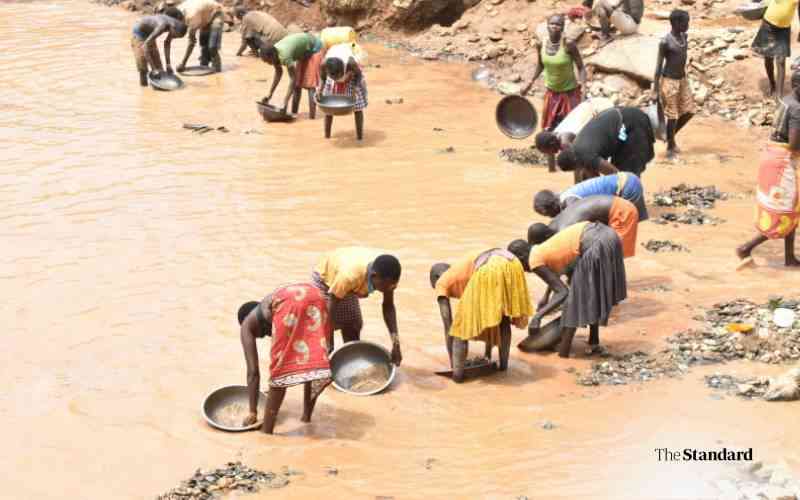
Pokot and Turkana miners work side by side at a gold pit in Kambi Karaya. June 6, 2025. [File Courtesy]
Residents living along the Turkana–West Pokot border have raised concerns over pollution arising from gold mining activities.
They say River Turkwel, which is the main feeder to Lake Turkana, has been contaminated with pollutants by gold miners who have invaded the area in recent months.
They are attributing recent sudden deaths of livestock to contaminated water following enhanced gold mining in Lami Nyeusi and Kambi Karaya, stretches along the border of the two neighboring counties.
Yesterday, residents accused government agencies of failing to regulate gold mining operations along the river Turkwel, claiming that miners were increasing their activities and posing risks to the ecosystem.
They demanded immediate intervention by government agencies, among them the Ministry of Mining and the National Environmental Management Authority (NEMA).
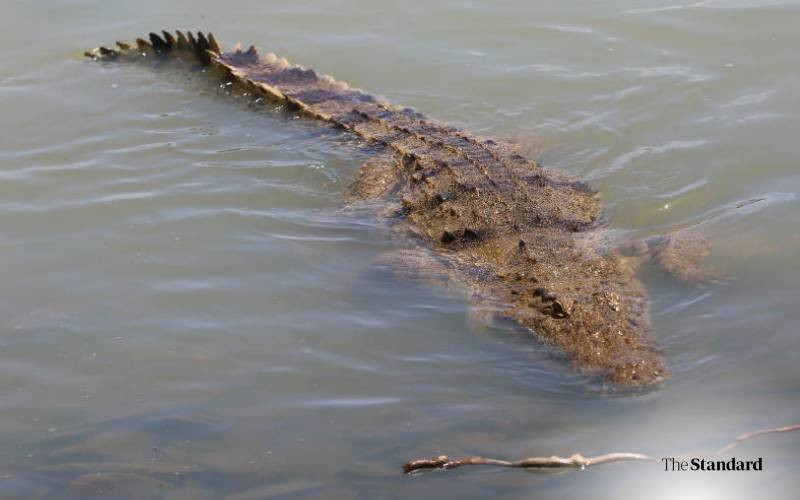
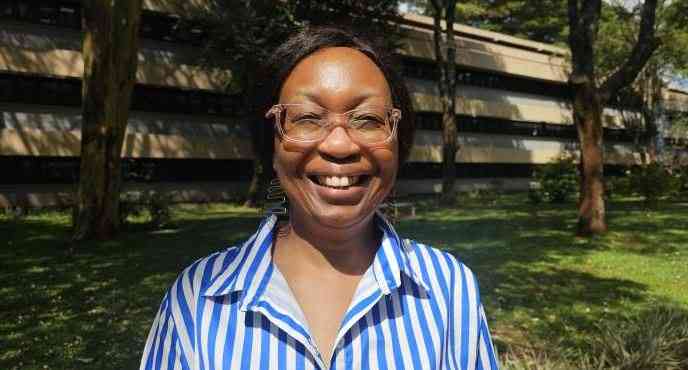
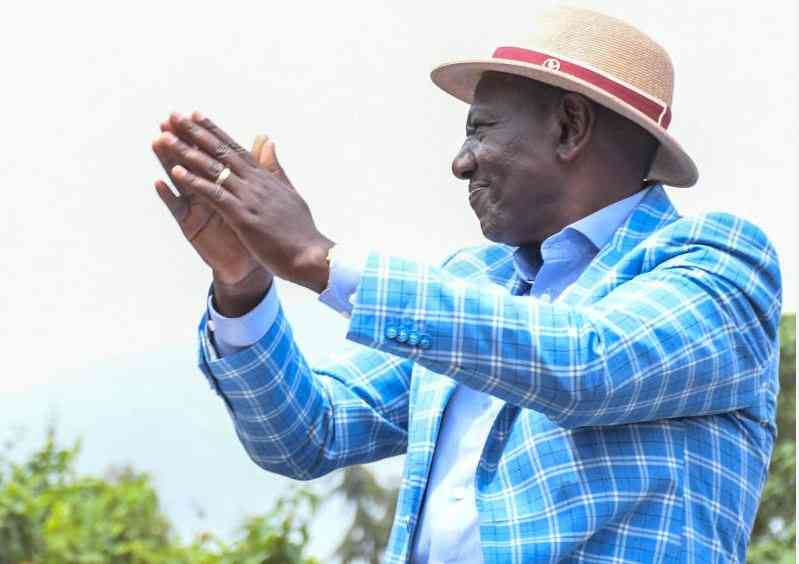
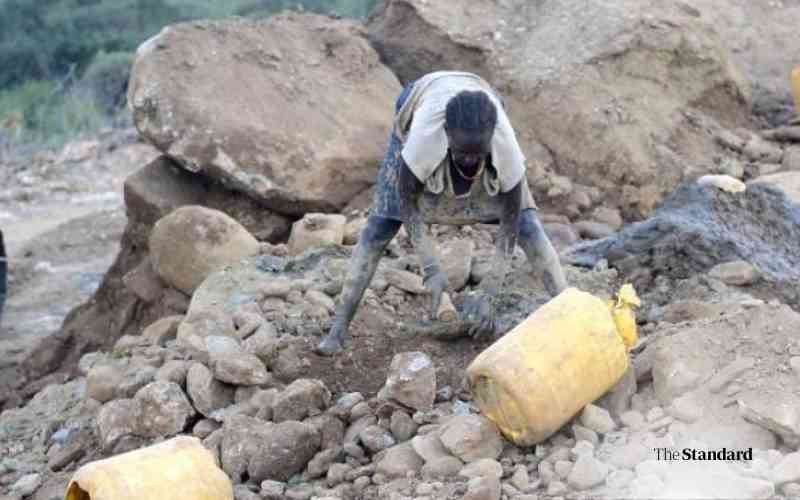
Kevin Amoit claimed that the government has been silent as miners extract gold in the river, leaving residents with polluted water.
Amoit expressed displeasure with what he termed as a lack of oversight on the ongoing mining activities.
He said aside from polluted water, dangers, including the collapse of mines, were lurking.
He claimed that government officers have been visiting the mining sites, but no action has been taken to reduce the contamination of water.
Another resident, Namoni Ngilimo, who is the Assistant Chairlady of Maendeleo ya Wanawake in Kainuk, said pastoralists have suffered after grazing fields were turned into gold mining sites.
“There are so many deep depressions and holes in an area which was rich in pasture. The grazing patterns have changed, and it might result in fights for pasture along the border,” she said.
The mining activities in Lami Nyeusi have raised concerns after a tragic incident where four miners died following a collapse of an unregulated gold mine in Aporon, West Pokot County, a week ago.
Former West Pokot Governor John Lonyangapuo claimed that illegal mining activities were happening with the silent backing of state actors.
Stay informed. Subscribe to our newsletter
“We need transparency. Let all gold mining companies publish their licenses. Let NEMA inspect the sites. Let us see proper enforcement,” said Pastor Samuel Erupe, a faith leader in Kainuk.
Friends of Lake Turkana, an organisation that safeguards the lake’s ecosystem, called for the immediate stoppage of mining activities along the common border, claiming that there were no Environmental and Social Impact Assessment Reports.
Director of the organisation, Ikal Ang’elei, said the use of cyanide was a potential threat to River Turkwel and the Lake Turkana ecosystem.
“We are in the process of collecting water samples from River Turkwel and Lake Turkana for testing. In March this year, we spoke to the Director of Environment of Turkana County and the NEMA officer in West Pokot, and we did not get clarity on the ESIA,” the director said.
Supporting Ang’elei’s concerns, local human rights activist Mr Eliud Emeri condemned the ongoing mining activities as an illegal business that lacks proper oversight and accountability.
“We are calling on NEMA and the Ministry of Mining to stop turning a blind eye. There are no proper guidelines, no public participation, and no accountability. The community is being exploited," Emeri said.
In a quick rejoinder, Mohammad Hussain, who is the secretary of miners in the area, dismissed the claims, saying the investors were paying royalties and held all requisite licenses.
“We are using pure water in cleaning gold. We also do backfilling on mining sites, and we have not degraded the environment in any way. If we were operating against the law, we would have been arrested and charged,” he said.
Ibrahim Salat, also an investor in the mining operations, came out to defend the activities and dismissed claims of environmental harm.
“There is no use of chemicals like cyanide in our gold extraction process. We are strictly following environmental safety procedures and using water-based methods only,” said Salat.
County Mining Officer Nashon Cheboi revealed that there were a number of illegal mining operations along the border.
“There are several illegal mining activities there. They have no valid mining or environmental licenses. They do not pay royalties, and the government is losing a lot of revenue due to their activities,” Cheboi said.